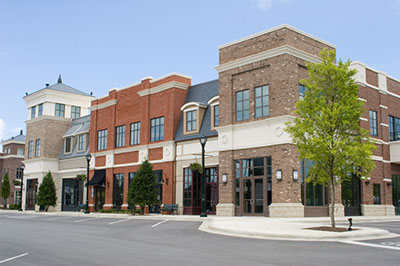
Running a commercial business comes with risks, but taking proactive measures can safeguard your operations, minimize losses, and potentially reduce insurance premiums. By focusing on prevention and risk management, businesses can protect their assets while saving money. Here are five strategies every commercial business should consider:
1. Invest in Comprehensive Security Measures
Protecting your business against theft, vandalism, and cyber threats is critical. Some key steps include:
- Installing surveillance cameras and monitored alarm systems.
- Securing access points with keypad or keycard entry systems.
- Training employees on cybersecurity best practices to reduce the risk of phishing or data breaches.
Insurance companies often offer discounts for businesses that implement robust security protocols.
2. Conduct Regular Safety Inspections
Workplace accidents can lead to costly claims and downtime. Routine safety inspections and hazard mitigation help prevent injuries and keep employees safe. Key actions include:
- Ensuring compliance with OSHA standards.
- Maintaining clear walkways and properly storing hazardous materials.
- Inspecting and servicing equipment to avoid malfunctions that could result in accidents.
Businesses with a proven commitment to safety may qualify for lower workers' compensation premiums.
3. Implement Risk Management Training
Employees are your first line of defense against losses. Proper training helps them recognize and respond to potential risks. Consider:
- Providing safety training tailored to your industry.
- Creating emergency response plans for fires, natural disasters, and workplace violence.
- Conducting regular drills to keep employees prepared.
Documenting and enforcing risk management practices can demonstrate to insurers that your business is serious about minimizing liabilities.
4. Maintain Your Property and Equipment
Poor maintenance can lead to costly repairs, downtime, and even liability claims. Key preventive measures include:
- Regularly inspecting your building for structural issues, leaks, or electrical problems.
- Servicing equipment and vehicles to ensure they meet operational standards.
- Keeping parking lots and sidewalks free of hazards, especially in winter months, to avoid slip-and-fall accidents.
A well-maintained property can reduce the likelihood of claims and may result in lower property insurance rates.
5. Leverage Technology to Monitor Risks
Advanced technology can help businesses proactively address potential problems before they escalate. Some useful tools include:
- Sensors for water leaks or temperature changes to prevent damage to inventory or property.
- Fleet monitoring systems to track vehicle usage and ensure safe driving behaviors.
- Data analytics to identify patterns of risk in operations.
Insurers often recognize the value of technology in reducing claims and may offer incentives or discounts for its use.
Bonus Tip: Review and Update Your Coverage Regularly
As your business evolves, so do its risks. Regularly reviewing your insurance policies ensures you’re adequately covered and not paying for unnecessary protection. Working with an experienced agent can help identify gaps in your coverage and explore ways to lower premiums.
Prevention is the cornerstone of effective risk management. By taking these five steps, commercial businesses can reduce the likelihood of losses, create a safer environment for employees and customers, and save on insurance costs.